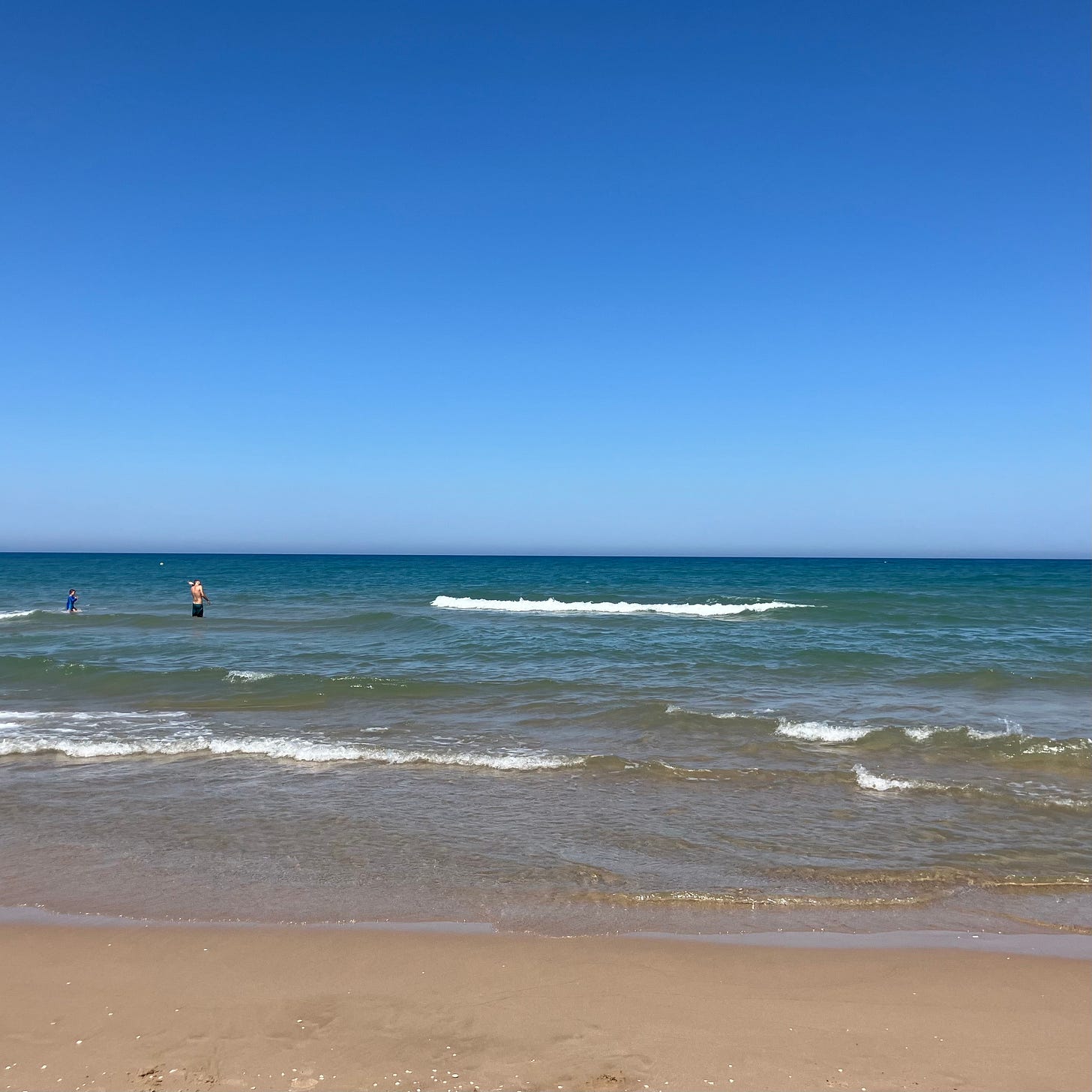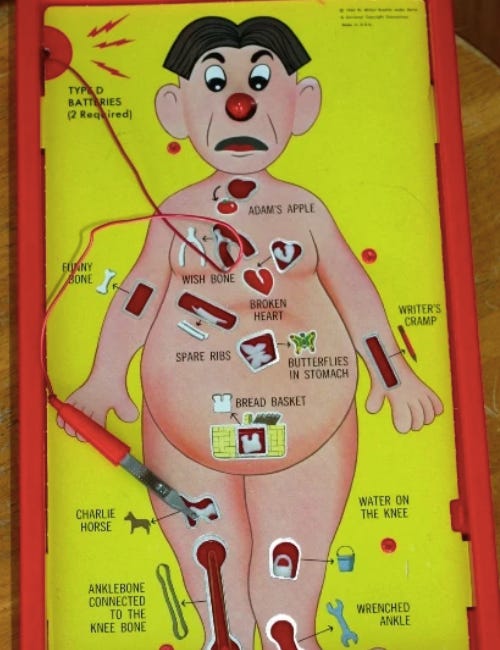A beach, somewhere in Spain. Photo by Ana Bosch.
In April 2017, an issue of The New Yorker featured an article titled “#Vanlife, the Bohemian Social-Media Movement”. I am not sure why the article stayed with me; maybe it is because it was one of the last long features I could finish reading from the aforementioned publication. That July, CA was born, and I stopped having “only” one child. Soon enough, I was sneaking to the toilet with the weekly issues that were arriving religiously in our postbox to have only time to read the jokes. C and I came to the realization that a subscription to The New Yorker only to read the jokes was the paradigm of wasting money; that, plus C kept eyeing the Goings On About Town with increasing frustration at not living in New York, to which I remarked - “Babe, even if we lived there, do you think that with our salaries and two children, we would be doing any of that stuff?” So yes, that was one of the last issues I remember reading1.
I recall finishing the article with the overall feeling that “Youth is wasted on the young,” or maybe more like, “Is this what happened with hippies?” I also developed a more conscious awareness of the harm that social media and big corporations that only care about keeping us consuming were inflicting on the very core of what humanity means.
The other day, I stumbled upon an essay by
entitled “All Hail the Cloud” (which I recommend you all read; it’s poignant and hilarious, albeit sad). It reminded me of that #Vanlife article, so I looked for it to see if the impression it had left on me at the time still held true. You can read the New Yorker piece here if you wish, but what I extracted from it, then and now, was a story about a young couple who lived in a van with the purpose of being “free” but had ended up being a slave to sponsors and content creation and likes and a whole bagful of nightmarish performance statuses:“King checked Instagram on her phone; her most recent post, a shot of a storm building over the Pacific[…], was underperforming. ‘I don’t think people are even reading this post, because it’s a picture of the ocean and apparently people don’t want to look at that,’ she said testily.” [emphasis mine]
At some point in the interview, they own that their most successful posts were the ones that pictured the girl in a bikini (the dog was optional). And this is the modern society we live in, where the most revolutionary thing one can be is a “content creator” posting non-stop pictures of themselves living a life that is not true at best, at worst, not even theirs; it belongs to some corporation that crunches numbers and sees if one is profitable or not.
However, not all is bad. Re-reading this article seven years on, in the context of a society shaped by social media, fills me with hope. I refuse to think that our youth will not wake up one day and think- “There must be more to life than this demand of constant witnesses to our every action, this need to be a perpetual voyeur of other people’s lives.”
I mean, the tables have to be on the verge of turning, right? Considering all the roller-coaster social movements the Western world2 has gone through in the past century, we have to be getting tired of this one soon, too, right? RIGHT?!? Like with crotch-hugging men’s pants that every so often come back but never (thank God) with the same enthusiasm for them shown by the 1970s (a bit off-topic, but did any of the members of the BeeGees procreate?)
But with great hope comes great responsibility. We will need to deal with the casualties of the war against social media that some of us are waging. Like, we will have to re-teach plenty of people what it is like to contemplate any given landscape and feel a moderate bout of pleasure due to the enjoyment of something in real life, not through some light-enhancing filter, and like it quietly in the privacy of their brain, no need for anyone else to agree it is “awesome” “astounding” “amazing” “extraordinary” or “breathtaking”. Some of these casualties will have to learn to enjoy these small pleasures from scratch without the need to exaggerate their feelings since they have been hooked on iPads since infancy.
I have mentioned previously an essay by
on Modelling Idleness, but I encourage you once again to read it since it has a very important message on precisely the topic I am touching upon today.“there are very few models online for idleness, for being content with aspects of an unshowy ordinary life and for enjoying repose and contemplation without either using it as a means of showing off or showcasing some sort of personal brand. There are few models for simply looking out of the window every single day. Not as a means of gaining enlightenment or improving various smartwatch monitored health metrics but simply as a thing to do for its own sake.”
So, I take up the challenge to model an ordinary life that is not showy but happy in its quietness. Here, I present my first attempt at being the bard of the small things.
Observing the sea.
For those of you who know the Mediterranean, you recognize that the Spanish Levante is a bacchanal of concrete and architecture of nonsense. But if you are lucky enough to be from nearby, you also know that there are small oases of beaches that still have their dunes that the 1970s and 80s didn't have time to spoil; the 90s didn't find them because of some miracle, and the 2000s decided to protect them a little better.
C and I like to take the kids to one of these beaches with few people and fewer services. A dilapidated beach bar tucked behind the dunes offers an expensive but tasty paella and doesn't sell ice creams, possibly because the population of children who buy them is so small that they expire from year to year. As there are no public toilets, I always end up asking for an iced coffee and a Fanta as an excuse so that one of the three children can use the beach bar's toilet to poo. With three children, the chance of a squeeze triples.
As I enter this shack, I see that one more year the owner has refused to change the 60's tiled floor; the light blue paint is holding up as well as it can against the increasingly peeling walls. I approach the sticky bar to order, and while I wait, I notice that the false ceiling still has the same neon office lights from the 80s, and I am grateful that in a July midday there is no need to switch them on because the light floods in through the huge windows always open onto a terrace overlooking the sea.
Today, CA and I accompany E to the bathroom so that he can use it. While I wait outside the only toilet with a light and a working flush, with some napkins in hand that I have asked for at the bar to assist with the cleaning afterwards (providing the toilet with actual toilet paper would be too modern for this place), I look down the dark corridor that leads from the toilets to the bar and I see CA’s face looking in from the outside, her toothless smile as she mimics to me she is hot and cannot possibly wait for E to be done pooping to get her soft drink. As I laugh, looking at her expression of “I’m dying out here and no one seems to care,” I look beyond her sweet face onto the horizon, where the sky meets the sea in an impossible array of blues. While enjoying the view, I hear E from inside the toilet shouting, “Mum, I’m done!” so I push open the door to proceed to wipe his bottom.
Yours in divine (im)perfection,
Ana (bard of small things)
My friends who have children keep asking, “What was I doing before with all that time?” To which I believe the answer is, “I think we were all being interesting, that’s what.”
I am very ignorant of any cultural movements outside Western culture, and this is entirely my own fault. But in my defence, I will also admit that my knowledge of the actual movements that have shaped the 20th century is very superficial.
The Anatomy of Laughter.
Podéis encontrar la versión en castellano aquí. I swear this is not a parenting post.









Ana, I swear we moved (in our forties, with a baby) to New York just because of that damn goings on section in the New Yorker! Then of course once we were there it was too difficult to go out and do any of the things. I loved your post, and my husband and I have been making a big effort to do less internet and more real life lately, which is great and kind of feels like we’re on vacation.
Isn’t it crazy how doing something (a leisure activity, a holiday, simply relaxing) without posting about it online, is almost a revolutionary act now.